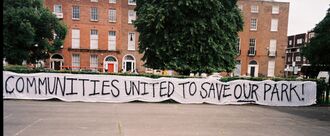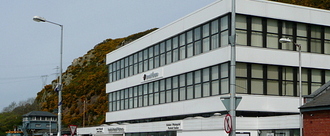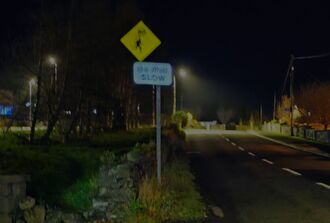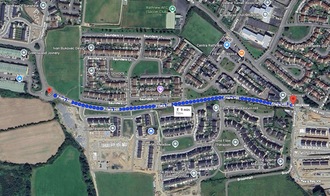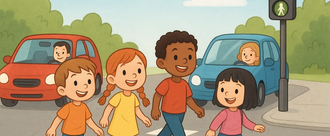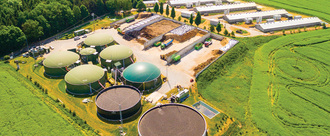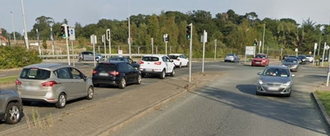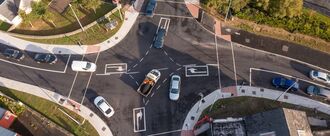- Featured
- Animal Rights
- Anti-racism
- Arts & Culture
- Children
- Climate
- Corporate accountability
- Crime
- Disability rights
- Economic
- Education
- Environment
- Food and Sustainable Production
- Gender Equality
- Governance and Transparency
- Health
- Housing
- LGBT Rights
- Mental health
- Northern Ireland
- Planning
- Privacy and Data Protection
- Rural Inequality
- Social Justice
- Trade
- Transport and Infrastructure
- Workers' Rights
- More
-
Improve Sports and Play Facilities in Mountjoy Square!Dublin City Council has announced plans to redevelop Mountjoy Square. https://engage.dublincity.ie/en-IE/projects/re-imagining-mountjoy-square-park-part-8/2 This in and of itself is to be welcomed. No one argues against the park currently being in a squalid state of disrepair. However, the current plans fail, beyond token measures, to provide appropriate play and sports facilities for the youth of the area. We must have sports facilities in Mountjoy Square where we can attract and nurture local young people, offering a pathway to a happy, healthy life in the grey concrete jungle of the North Inner City. Sports and physical activities are not just games; they teach teamwork, discipline, resilience and the value of perseverance. How can we expect our children to thrive if they have no spaces or where they play, learn and grow are neglected? No facilities, cracked courts, worn-out fields send a message that their growth and health are not a priority. The redevelopment of Mountjoy Square is a huge chance to show them that the opposite is true. Dublin City Council shouldn't miss the open goal!244 of 300 SignaturesCreated by Liam Toebes
-
Allow Dogs on Public Transport in Ireland with Clear and Uniform RulesWe, the undersigned, call on the Irish Government, Transport for Ireland (TFI), and public transport operators — including Dublin Bus, Bus Éireann, Luas, and Irish Rail — to update and standardise current rules to allow dogs on public transportation in a safe and regulated way. At the moment, the rules are inconsistent and often restrictive. They differ from one operator to another and do not meet the needs of thousands of citizens, families, workers, and responsible dog owners. This creates daily challenges and prevents many people from using public transport. Many European countries already allow dogs on buses, trams, and trains under simple and effective regulations such as: • mandatory lead • muzzle if required • reduced‑fare or free pet tickets • peak‑hour limitations only when necessary Introducing clear and modern rules would bring significant benefits, including: • reduced car usage • improved access to public transport • better inclusion for families and individuals living with pets • alignment with European standards • promotion of a more pet‑friendly society We therefore request the introduction of a uniform national policy allowing dogs to travel on public transport across Ireland, in a way that ensures the safety and comfort of all passengers. By signing this petition, you support a more modern, accessible, and pet‑friendly Ireland.14 of 100 SignaturesCreated by Mario Rossi
-
Ban use of E-Scooters on public roads.It is important to reconsider ban for E-Scooter as it poses immediate danger to its operators and drivers, pedestrians around them. A lot of underage people put themselves in danger by using E-Scooters in public, statistics show recent raise in accident cases. E-Scooters are very unsafe, fast and unstable, especially if used by inexperienced persons and in crowded towns or on busy public roads.13 of 100 SignaturesCreated by Daniels Upenieks
-
Early train from Dublin to Carlow , Kilkenny and WaterfordReduce traffic congestion and encourage use of public transport351 of 400 SignaturesCreated by James doherty
-
STOP the speed on Caheroyan Road and build a footpath outside Stonehaven/FernhillWe need a safer road and pedestrian access to Athenry town.192 of 200 SignaturesCreated by J Keating
-
Safe Pedestrian Crossing on Friars Hill Road in Rathnew – Protect Our Children and Families!This busy stretch of road is a daily hazard for families, children, and elderly residents. Every morning and afternoon, dozens of schoolchildren and parents with strollers must cross here to reach nearby schools and crèches, with no safe, marked crossing in place. Vehicles speed through without clear signals to stop, putting lives at risk. We've already raised this issue in a formal letter earlier this year, but action is overdue – incidents are waiting to happen, and we can't afford to wait any longer. A simple pedestrian crossing would: • Enhance road safety for vulnerable pedestrians, reducing the risk of accidents. • Promote healthier lifestyles by encouraging walking and cycling in our community. • Support environmental goals by making sustainable travel options more accessible and appealing. Wicklow County Council has a responsibility to prioritize community safety and infrastructure improvements. We urge you to act now: conduct a site assessment, allocate the necessary resources, and install this crossing without delay. We're ready to participate in any consultations, surveys, or meetings to make this happen.333 of 400 SignaturesCreated by Nenad Milosevic
-
Keep everyone safe at Rathnew by keeping the traffic lightsWhy Keeping the Lights Matters 1. Pedestrian Safety Must Come Before Traffic Flow Roundabouts are designed primarily for vehicle efficiency—not pedestrian protection. At this junction, children walk daily to local schools and to the Little Harvard crèche. Signal-controlled crossings give them a guaranteed safe moment to cross, something a roundabout cannot provide without significant additional infrastructure. Traffic lights create clear, predictable stopping points, while roundabouts rely on driver judgement—something that is far less reliable when young children are crossing. 2. A Roundabout Increases Risk for Children and Vulnerable Users At busy multi-directional roundabouts: Cars are constantly moving. Gaps in traffic can be hard to judge, especially for children. Drivers often fail to yield to pedestrians at informal crossings. Replacing traffic lights with a roundabout would remove the only guaranteed safe crossing facility at this location and expose young pedestrians to unnecessary risk. 3. Controlled Signals Reduce Speed—Roundabouts Do Not The current lights naturally slow traffic and force vehicles to stop. A roundabout, even when designed well, encourages continuous movement and can lead to vehicles entering too quickly. With houses, schools, bus stops, and footpaths all nearby, lower speeds mean fewer and less severe accidents. Preserving the lights keeps speeds predictable and manageable. 4. Minor Traffic Delays Are Not Worth a Potential Injury or Fatality While some motorists are frustrated by waiting a few extra minutes at peak times, this inconvenience is insignificant compared to the safety provided by controlled pedestrian crossings. A slightly quicker commute cannot be valued above a child’s life. Traffic lights provide structure, clarity, and protection. Roundabouts prioritise flow—not safety. --- Why This Approach Serves the Community Best This area is expanding rapidly, with more families, more young children, and more pedestrian activity than ever before. Keeping and upgrading the traffic lights ensures: A safer route to school. Clear protection for pedestrians. Better accessibility for all residents. A transport layout that prioritises people, not just vehicles. We should expect a road system that safeguards our children—not one that encourages faster driving simply to reduce delays.6 of 100 SignaturesCreated by Tinaklly Resident
-
Bring in National Safety, Odour, and Environmental Regulations for Biogas AD Plants in IrelandAnaerobic digestion (AD) and biogas can play a positive role in Ireland’s renewable energy transition — but only when properly regulated. Unfortunately, Ireland currently lacks the basic national standards that other EU countries already require. As a result, AD plants are being proposed far too close to homes, private wells, schools, farms, rivers, Natura sites, and even busy motorways. Local authorities have no consistent guidance, and communities are left exposed to unnecessary health, safety and environmental risks. The Problem 1. No minimum setback distances Ireland has no national separation distances between AD plants and: • homes • drinking-water wells • schools • roads and motorways • protected habitats Other countries use 300–500m as standard — Ireland uses none. 2. No national odour standards Odour from digesters, waste reception, and digestate tanks can travel long distances depending on wind and elevation. Ireland has: • no odour regulations • no odour-modelling requirement • no mandatory odour-abatement technology Communities near existing plants frequently report persistent nuisance. 3. Risks to private wells and groundwater Many homes rely on private wells. AD sites store large quantities of slurry, digestate, industrial food waste, and fats/oils/grease. A spill or leak can contaminate groundwater. Ireland has no minimum distance from wells and no hydrological protection rules. 4. Proximity to motorways and road-safety concerns AD plants store methane, biogas and large waste volumes. Without national TII guidance, sites can be placed only metres from national roads and motorways — raising concerns about: • tanker traffic • vehicle fires • collision risks • gas leaks • spill containment This is a major planning gap. 5. Industrial waste accepted with little oversight Many AD plants take: • offal • dairy processing waste • food-industry by-products • fats, oils, grease (FOG) • expired packaged food These greatly increase odour, emissions, and risk. Ireland has no national limits, no composition standards, and weak monitoring. WHAT WE ARE ASKING FOR We call on the Minister for the Environment, the EPA, TII, and the Department of Housing to create national AD biogas regulations, including: ✔️ Minimum 500m setback distance From homes, schools, and private wells, unless independent scientific assessment proves otherwise. ✔️ National odour limits With mandatory odour-modelling, abatement systems, and compliance monitoring. ✔️ Groundwater and well protection Hydrological assessments, protected zones, and strict containment standards. ✔️ Rules for industrial waste Clear permitted-waste lists, composition limits, and independent monitoring. ✔️ Road-safety guidelines National TII rules for AD plants near major roads and motorways. ✔️ A full national AD planning framework Like those already existing for windfarms, quarries, and intensive agriculture — ensuring safety, consistency, and transparency. ⸻ WHY THIS MATTERS Ireland needs renewable energy — but we also need safe, responsible, and properly regulated development. Right now, communities across Ireland are being forced to fight these issues one planning application at a time, without the protection of national rules. A clear regulatory framework would protect: • public health • groundwater and private wells • road safety • rural communities • local wildlife and habitats • quality of life We urgently need the Government to act. CALL TO ACTION Sign now to demand strong national regulations for biogas AD plants — to keep our homes, water, and communities safe.361 of 400 SignaturesCreated by Adrian Darcy
-
Replace Hazardous Traffic Lights with Safe Roundabout at Tinakilly Park, RathnewWhy Change Is Needed 1. Ongoing Safety Hazards & Frequent Accidents The existing layout and road markings create confusion around right-of-way and turning paths. Many drivers approach the junction unsure of how to move safely through it, leading to numerous collisions and near-misses. Residents regularly witness dangerous situations that could be prevented with a clearer, more intuitive layout—such as a modern roundabout. 2. Regular and Prolonged Power Outages The traffic lights at this junction are well-known for frequent power failures, sometimes lasting several days. During these outages, the junction becomes extremely dangerous for motorists, cyclists, schoolchildren, and pedestrians. Without working signals or clear priority markings, the risk of serious accidents increases dramatically. A roundabout—safe, self-regulating, and functional during power loss—would eliminate this hazard entirely. We have a significant number of children walking independently to school as well as parents walking their children to our designated crèche, Little Harvard. Without pedestrian lights, crossing the road becomes an extremely high risk of serious accidents/death for all, which could be avoided with a roundabout and either a zebra crossing or pedestrian lights, like they have at the tennis club beside House Savers. 3. Unnecessary Traffic Delays The current signal-controlled junction contributes to significant traffic build-up, especially during peak school and commuting times. A roundabout would allow traffic to flow continuously and far more efficiently, reducing congestion and improving travel times for everyone in Rathnew and Wicklow town.545 of 600 SignaturesCreated by Tinakilly Park Residents' Association

-
Preserve Paper Boarding Passes for Ryanair PassengersBy adding your name to this petition, you will be helping protect the right of millions who lack digital skills or reliable smartphone access to stress-free travel. By demanding that Ryanair keep paper boarding passes, you will be adding pressure to Ryanair, helping to promote equal treatment of passengers. Together we can show heartless corporations, whose main motivation is their profit, how important it is to prevent discrimination against seniors, low‑income families, and those with limited literacy, and uphold the principle that essential services must remain accessible to all. We know how powerful people-power can be, and thousands of us adding our names to this campaign will make sure the airline listens to our call to adopt inclusive boarding pass options and drop a policy that will permanently excludes vulnerable passengers.70 of 100 SignaturesCreated by Alex Barton
-
Bring back the roundabout at Clieveragh, ListowelBy joining this campaign, you’re helping to make our roads safer, reduce congestion, and ensure local voices are heard in how our infrastructure is designed. Every signature and every show of support strengthens the message that residents want practical, safe, and community-focused solutions.365 of 400 SignaturesCreated by Cllr Aoife Kennelly
-
Restore the no. 9 and 40 buses for FinglasPeople in Finglas have now been left without a proper bus route that can access all over Dublin, there have been wait times longer than 40 minutes for a bus that is 9 times out of 10 cancelled. The new bus routes are leaving people without a bus to get to school, work or to see an elderly member of their family. It’s not fair for a bus that was being used by many people to be taken away from us so easily.687 of 800 SignaturesCreated by Eve Sarah

